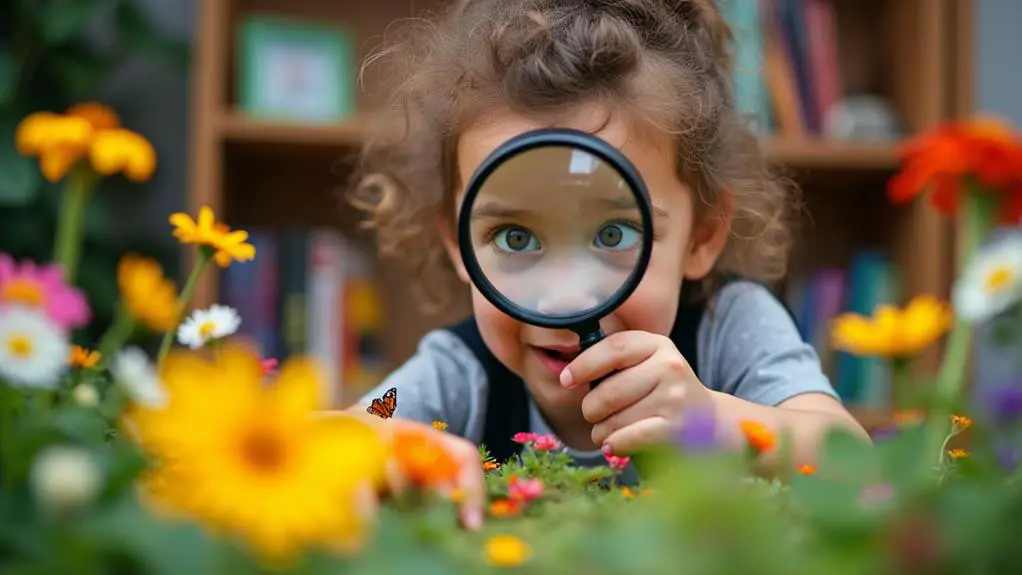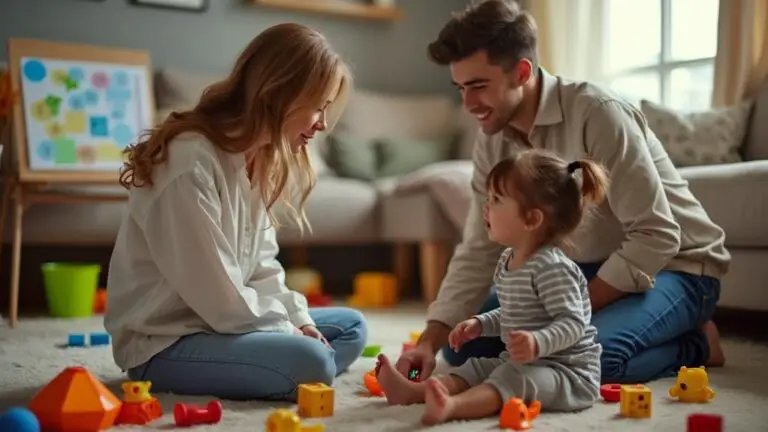Nurturing Curiosity in Children
As a parent and educator, I've witnessed firsthand the transformative power of curiosity in children's lives. I've seen how a simple question can spark a journey of discovery, leading to unexpected insights and personal growth. But nurturing this innate inquisitiveness isn't always straightforward in our fast-paced, information-saturated world. How can we, as caregivers and mentors, create an environment that truly fosters a child's natural desire to explore and learn? The answer lies in understanding the intricacies of childhood curiosity and implementing strategies that not only encourage questions but celebrate them. Let's explore how we can light this essential spark in the young minds around us.
Key Takeaways
- Encourage open-ended questions and provide thoughtful answers to promote critical thinking.
- Create a safe environment for exploration, allowing children to learn through trial and error.
- Expose children to diverse experiences and resources to stimulate their natural curiosity.
- Model curiosity by demonstrating interest in learning and seeking answers together.
- Incorporate hands-on activities and unstructured play to foster experiential learning.
Understanding Childhood Curiosity
Nearly every child is born with an innate sense of wonder about the world around them.
As a parent or educator, I've observed that children's curiosity peaks during their preschool years. It's astonishing to see them ask about 25 questions per hour, demonstrating their natural drive to explore and understand their surroundings.
Benefits of Fostering Inquisitiveness
By fostering inquisitiveness in children, we unfasten a treasure trove of benefits that extend far beyond the classroom.
When we nurture curiosity in children, we're cultivating a lifelong love for learning. I've seen how encouraging kids to ask questions and explore their surroundings leads to improved academic performance and better engagement in school. It's not just about grades, though. This approach develops critical thinking skills, empowering children to learn about the world around them more effectively.
I've noticed that inquisitive children often display greater emotional intelligence and kindness. They're more likely to contemplate different perspectives, fostering empathy and understanding.
Strategies for Encouraging Exploration

A treasure trove of strategies exists for encouraging exploration in children. I've found that asking open-ended questions prompts curious children to think critically about their surroundings.
Providing opportunities for trial and error through hands-on activities fosters a sense of exploration without fear of failure. I model curiosity by seeking answers together, promoting a culture of inquiry that enhances engagement.
To further nurture inquisitiveness, I recommend:
- Creating diverse experiences like museum trips
- Incorporating unstructured play into daily routines
- Encouraging problem-solving through independent exploration
- Exposing children to unfamiliar environments
These strategies stimulate curiosity and develop essential skills. By allowing children to experiment freely and explore their interests, we cultivate a love for learning.
Through these approaches, I've witnessed firsthand how children become more engaged, creative, and confident in their ability to discover and understand the world around them.
Creating Curiosity-Friendly Environments
Creating curiosity-friendly environments goes beyond simply providing materials for exploration. I believe it's about fostering a space where children feel safe to question, experiment, and engage in unstructured play.
By incorporating hands-on activities and collaborative spaces, we encourage experiential learning and creative thinking. I've found that open-ended questioning and wonder statements can ignite children's imagination, motivating them to seek answers independently.
In my experience, a truly curiosity-friendly environment offers diverse resources that stimulate inquisitive behavior. It's vital to design areas that promote dialogue and idea exchange among children, enhancing their engagement with various subjects.
Conclusion
I've come to realize that nurturing curiosity in children is a powerful gift we can give them. By encouraging questions, providing diverse experiences, and creating supportive environments, we're helping shape inquisitive minds ready to tackle life's challenges. I've seen firsthand how fostering curiosity can lead to improved problem-solving skills, creativity, and emotional intelligence. It's clear to me that by nurturing a child's natural wonder, we're setting them up for a lifetime of learning and growth.







